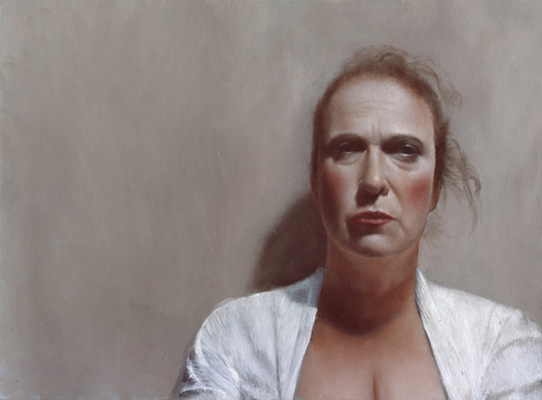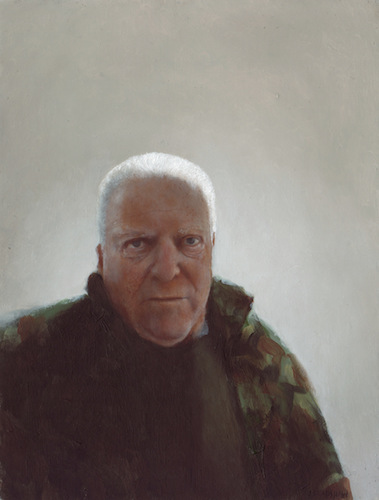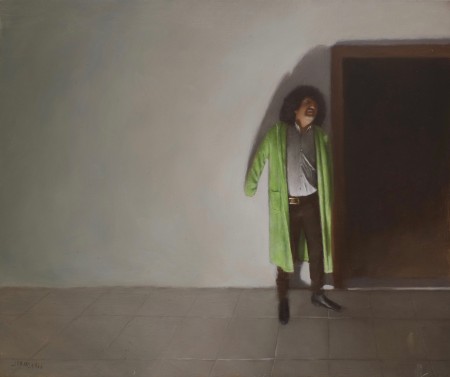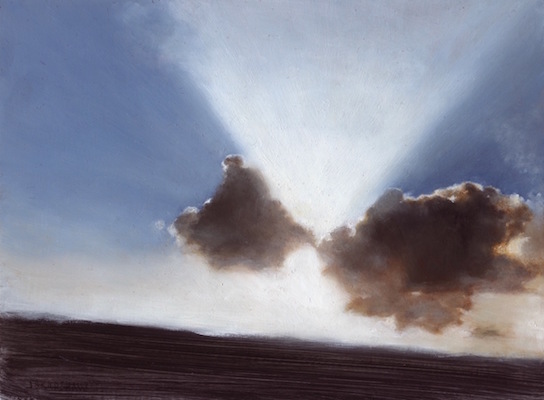John is a visionary, a prophet eager to announce impending destruction. Obsessive, bitter and tortured, a man who feels oppressed by a hostile world. He relives, as so many have before him, the apocalyptic odyssey which was described two thousand years before by another John, the author of the final book of the New Testament. The psychological tension has reached a breaking point, and reality begins to be invaded by terrible visions that embody his fears and his anger. The slightest disturbance is enough to provoke another apparition; as he cooks he smells the bitter smoke which rises from the eggs that he has burnt and suddenly he sees before him the Great Prostitute of Babylon, destined to burn in the infernal fires. He cuts himself shaving and is confronted with a vision of the seven implacable angels, emissaries of divine vengeance. John's personal apocalypse is drawing closer, he is certain of it. Reality is crumbling around him, the battle has begun between forces beyond his control. John is tormented, terrified, delighted and troubled by his visions as he awaits the end of his suffering, which will be swept away, purified, to make way for a new world.
Without Ezekiel, John would be lost. Ezekiel had helped John to realize that his visions were not simply the product of an unstable mind, but rather the revelations of God's plan which were granted to a select few able to bear such a heavy burden. They had met in the asylum, and Ezekiel had told him of his own visions of celestial creatures, and how he had been transported before the throne of God. He spoke of wheels of fire appearing in the sky, rotating wings surrounded by innumerable eyes. John was deeply touched by Ezekiel's descriptions, which gave meaning to his own persecutions. Ezekiel had been dead some time now, but he had been John's only real friend, and now, in his moment of crisis, John saw him too appear before him, Ezekiel had returned to accompany his disciple towards the light.
Most of the worlds ills, according to John, were caused by women. They represented everything that terrified him, the face of all of his humiliations and frustrations. John had found the seed of this indignation in the words of Ezekiel, who had described the unfaithful bride of Jehovah, covered in jewels and make-up, and nymphomaniac. Both men felt a deep derision towards her, and how she represented feelings which they would never be able to control. John sees her in front of him, the accused, and he is horrified to see that she remains proud. The accusations that he throws before her seem to bounce back towards him. He sees Ezekiel immersed in his struggle against the prostitute, and vows that he will not allow himself to be destroyed by her. He will be avenged.
The music performed during the event was composed for the occasion by Chiara Strada and Valeria Villeggia. Performed by Chiara Strada (mezzosoprano), Valeria Villeggia (soprano), and Davide Baudone (piano).









